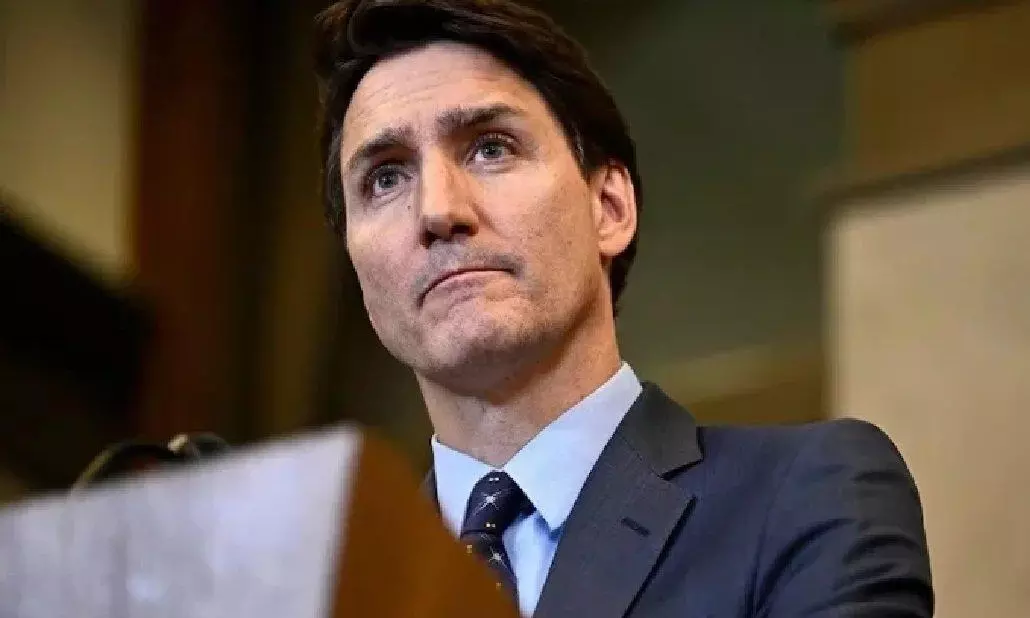Canada has announced 25% tariffs on USD 155 billion worth of U.S. goods in response to new levies imposed by President Donald Trump.
Prime Minister Justin Trudeau urged Canadians to support local businesses and vacation domestically, warning that the U.S. tariffs would have consequences for American workers and industries.
Canada’s Retaliatory Measures
Trudeau’s response was swift, with tariffs taking effect in two phases:
- C$30 billion worth of goods will be taxed starting Tuesday.
- C$125 billion will face levies in 21 days.
The retaliatory tariffs target a wide range of American products, including:
- Alcoholic beverages:American beer, wine, and bourbon.
- Agricultural goods: Fruits, fruit juices, and orange juice from Florida.
- Consumer products: Clothing, household appliances, and sports equipment.
LIVE: Canada’s response to U.S. tariffs | EN DIRECT : Réplique aux tarifs douaniers américains https://t.co/1R7HT03O9G
— Justin Trudeau (@JustinTrudeau) February 2, 2025
Trump’s Tarrif Threat
The move comes after Trump, citing national security concerns, imposed sweeping tariffs on key trade partners, including Canada, Mexico, and China. Under the new policy, U.S. imports from Canada and Mexico will face a 25% tariff, while Chinese goods will be hit with an additional 10% duty.
Trump’s administration justified the decision under the International Emergency Economic Powers Act (IEEPA), claiming it was necessary to curb illegal immigration and drug trafficking, particularly fentanyl.
In the U.S., Trump’s move aligns with his long-standing protectionist stance. While the tariffs aim to boost domestic industries, economists warn they could increase inflation and lead to job losses. Despite this, Trump defended the decision, stating, “The tariffs will make us very rich and very strong.”
Impact on Trade and Economy
With over $2.5 billion in goods crossing the U.S.-Canada border daily, the economic implications of the tariffs could be severe. Canada exported C$550 billion worth of goods to the U.S. in 2023, accounting for more than 75% of its total exports. Of this, 30% came from energy resources, a sector now directly affected by the tariffs.
Trudeau warned that American industries, particularly auto manufacturing, could suffer as Canadian tariffs make imports more expensive. “Tariffs against Canada will put your jobs at risk, potentially shutting down American auto assembly plants and raising grocery and gas prices,” he said.
Canada is not alone in its pushback. Mexican President Claudia Sheinbaum also announced retaliatory tariffs, while China’s Ministry of Commerce plans to file a complaint with the World Trade Organization (WTO). Chinese officials criticized Trump’s tariffs as a violation of WTO rules and warned of “corresponding countermeasures.”
The U.S. business sector has reacted sharply, with the U.S. Chamber of Commerce warning that tariffs would raise consumer prices and disrupt supply chains. The Distilled Spirits Council of the U.S. and other industry groups expressed concern over the impact on cross-border trade, particularly in the agriculture and energy sectors.
The trade war comes at a politically sensitive time for Trudeau, who has announced his resignation amid declining approval ratings. A new Liberal Party leader is expected to take over, while the opposition Conservatives lead in polls ahead of the next federal election.
ALSO READ: China Strongly Condemns Trump Tariffs, Calls Them A ‘Severe Violation’ Of WTO Rules






















